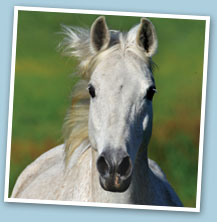
Health Tips
Owning a horse is a big commitment, and for most of us is a constant learning experience. At Petplan Equine, not only do we want to help you choose the right horse, we have a range of tips and advice to help you care for your horse when he arrives. We know first hand how distressing it can be when things go wrong and hope to reduce the amount of illness and injuries in horses in addition to being there to support owners financially when they need it.
Click on each of the tips below for more information .
1. Check a runny nose
A runny nose could be a sign of infection, call your vet if the discharge is not clear.
2. Horses’ legs need regular checking
Make it part of your daily routine to check your horses legs for swelling, lumps and soreness.
3. If in doubt call your vet!
Most vets will give advice over the phone and only come out if necessary.
4. Weigh his feed
Each of your horse’s meals should weigh no more than 2kg.
5. Record your horse’s weight regularly
Use a weigh tape to record your horse’s weight regularly, under weight or obese horse are more prone to illness and injury.
6. Monitor your horse’s food intake
Invest in a fishing scale and weigh forage to make sure your horse is getting the right amount of hay or haylage.
7. Record your horse’s vital signs
Recording your horse’s vital signs each day will help you detect if something is wrong.
At rest your horse’s signs should be between:
- Temperature: 36.5 - 38c
- Pulse: 30 to 40 beats per minute
- Respiration: 8 – 12 breaths per minute
8. Knowing how to spot Colic could save your horse’s life!
Know the signs:
- Pawing or scraping the ground
- Turning to look at the tummy
- Restlessness - getting up and down frequently
- Frequent attempts to urinate
- Rolling
- Increased pulse and high temperature
Know possible causes:
- Change in diet or feeding times
- Change of stabling routine
- Change in exercise level
- Worm burden
- Teeth problems
Know what to do!
- Call the vet immediately
- Keep your horse in an open space with soft surface
- Remember safety for yourself - a distressed horse is more likely to accidently hurt you.
9. Know your grazing
Most of us know Ragwort is poisonous but how well do you know the other plants in your horse’s field?
Highly Toxic plants include:
- Yew
- Mallow
- Ragwort
- Acorns
- Sycamore Seeds



